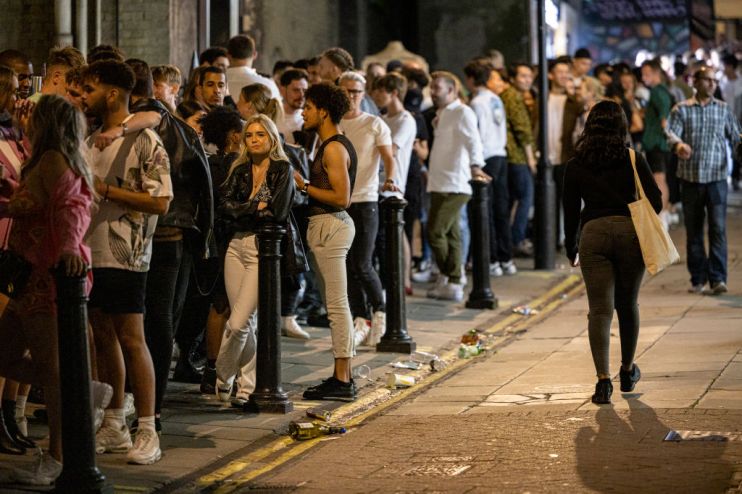Brits quit clubbing and booze in fresh blow for late night traders

Brits are drinking and spending less on a night out, a new report has revealed, as conscious clubbers ditch the booze to protect their pockets and health.
When partygoers hit the town they spent an average of £73.19 on a night out, 2.1 per cent less than they did a year ago, a study by night club operator Rekom UK has found.
The pandemic lockdowns followed by the economic turbulence that followed the war between Ukraine and Russia war has rattled the UK’s night sector, which accounts for 27 per cent of the nation’s workforce.
More than a third of UK nightclubs have closed down since June 2020.
Earlier this year, electronic music lovers were forced to bid adieu to Printworks, the rave hot spot in Surrey Quays which will now be transformed into offices (although organisers have said it will return “in some form” within three years.)
East London nightclub Werkhause also shut up shop in August, blaming rising costs for its closure.
The UK’s late night scene is also up against changing attitude towards alcohol – with many people now opting for alcoholic free drinks or ditching booze altogether.
Rekcom said that nearly half of the public go on a late night out without consuming alcohol – this was particularly prevalent for those aged 25-34.
Some 52 per cent said that they now consume less alcohol on a night out compared to a year ago.
This rose to 59.7 per cent for 25-34 year olds and among students, this was 48.5 per cent.
Greater awareness around the impact of binge drinking and young people having less money to spend on a night out have been two of the reasons proposed for the shift in attitudes.
Peter Marks, chairman of Rekom UK said that over the past year or so, there has been a clear and “fundamental shift in people’s socialising habits.”
At the same time, “high rents, which haven’t adjusted for the tough economic conditions affecting businesses across the sector, make for difficult trading.”
He added: “We have had to think prudently about our business decisions, whether that’s choosing to no longer open early-mid week to focusing our efforts on the bar sector, which offers an extended trading timeframe and appeals to a broader demographic.”
Michael Kill, head of the Night Time Trade Association, told City A.M that the industry is still in a very “unstable and fragile” environment.
“We’re going into a very different era and there is, without a doubt, some adaptation that has got to come from the night time economy.”
He added: “But the challenge that we have is, we don’t know what the new normal will look like, because of the economic pressures…so what we’re doing at the moment is obviously battling a crisis, whilst trying to stabilise businesses while trying to keep an eye on what the future looks like economically.”